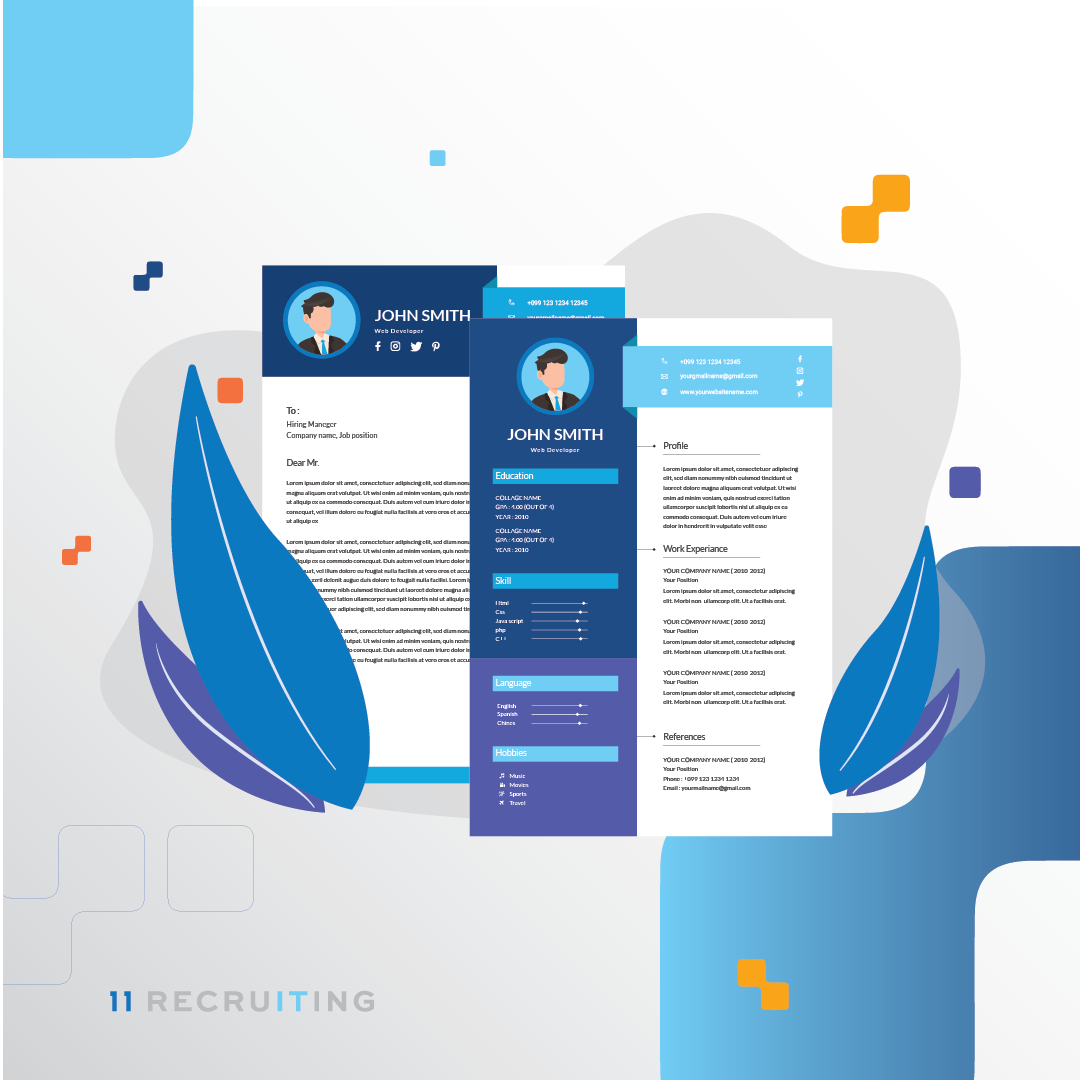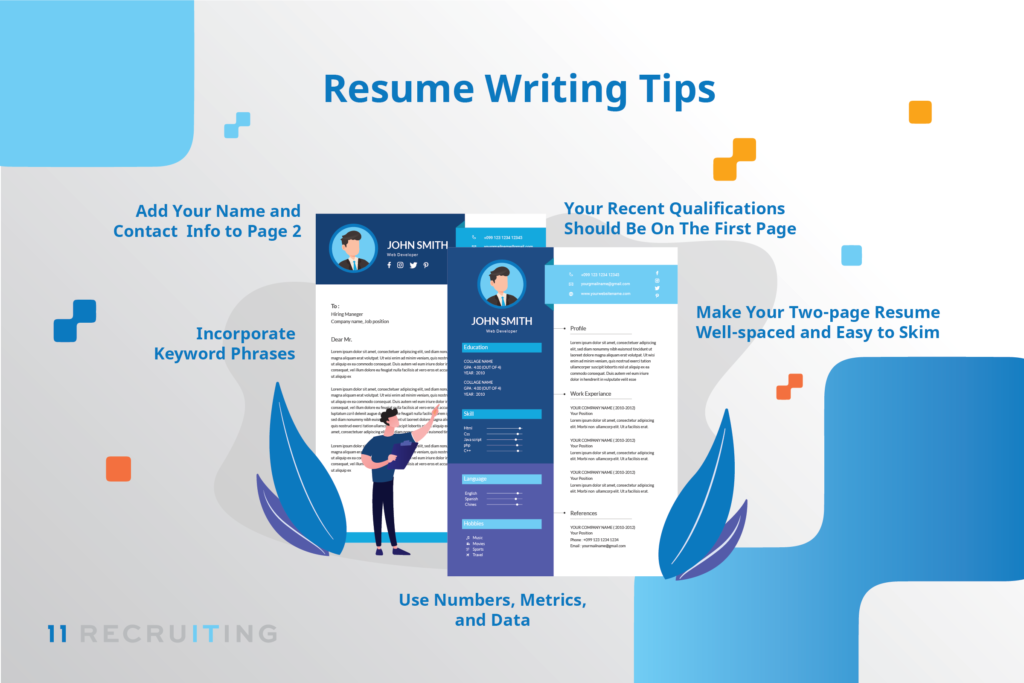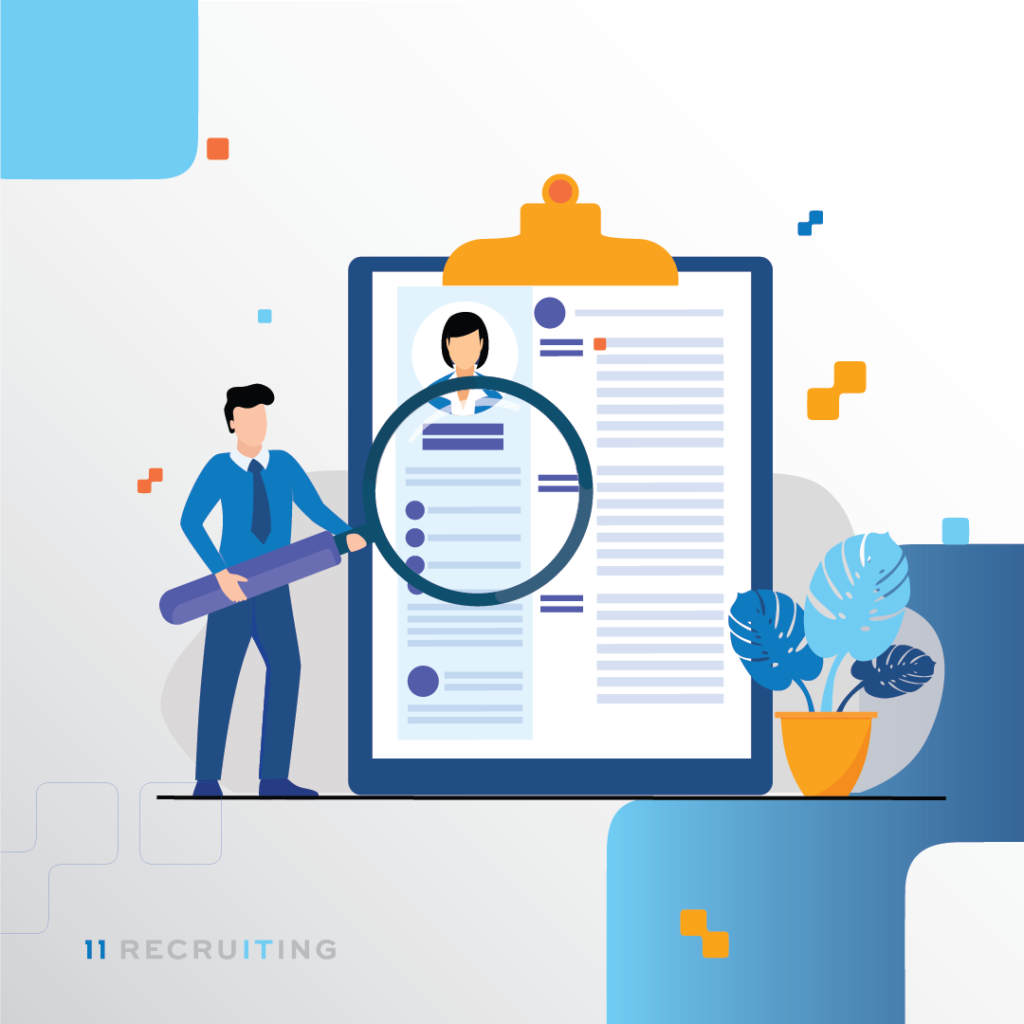
Suppose you see an IT job post, you read through the description, and feel that you’re qualified to apply. So, you rush to edit your resume, but then you realize it’s going into page two. You then find yourself worrying if this is alright. Personally, asking if a 2-page resume is appropriate is like asking what you should have for breakfast, it depends on what you can do, need and want.
In this guide, you’ll learn when it’s appropriate to write a 2-page resume, the best format you can use, and tricks that will help you stand out. But before we dive into that, I want to debunk the myth about having a one-page resume.
The One-page Resume Myth
There’s a myth that a one-page resume helps you land interviews faster. People say that a 2-page resume is too lengthy, and because it usually takes 7 seconds to read, it’ll likely get ignored.
But, here’s a question: What do you do if you have 7 -10 years of relevant work experience in the IT industry? Are you going to shrink up all those brilliant experiences, IT skills, and day-to-day responsibilities to a single page? That’s nonsense. There was a time when the rule of one page had a stand, but that’s long gone.
Debunking The One-page Resume Myth
A resume must highlight your relevant skills and history of responsibilities germane to the job description. If you’re hiding 5-10 years of your work experience because of the myth, then you’re not ready for the job.
Another misconception of the one-page resume is that hiring managers may assume that you lack relevant skills and experience since it isn’t saying a lot. Now, I’m not saying you should choke your resume with a lifetime’s worth of experience and make a novel. You just need to tailor fit yourself to the job position.
Why Should I Use a 2-Page Resume?
There’s no right answer to this, but a 2-page resume will give you extra space to add your relevant skills and experience. This can help you repeat industry-specific keywords.
Why do you need to repeat industry-specific keywords on your 2-page resume?
In this digital age, most IT firms use an automated applicant tracking system (ATS) to do all the initial screening on all resumes they get, even the digital application submission. ATS are often programmed in a way that favors resumes that hold, use, and repeat the job or industry-specific keywords or phrases.
Like google bots that help check for keywords to increase your rank searches. If your resume has many of the job-specific keywords, you’ve got the interview. If you’re concerned that it seems like you’re cheating or are too redundant, don’t worry, It’s one of the proven ways to get you to the stage where you’ll get considered for an interview. Make your resume stand out
Frequently Asked Questions
When Should I Write a 2-page Resume?
A 2-page resume is ideal when you have a lot of relevant work experience in line with the job offer. So, if you’re a professional or if you have the related IT skills and experience, and you can quantify your accomplishments to tell how you succeeded in a role, job, project, or assignment, then a one-page resume might not do you well.
When Should I Never Write a 2-page Resume?
As an entry-level applicant, you don’t need to write a 2-page resume because you don’t have the necessary experience yet. But if you’ve done a couple of internships and have lots of achievements, a 2-page resume is ideal.
What Are The Shortcomings of a One-page Resume?
The biggest shortcoming of a one-page resume is the lack of detail. When recruiters review your resume, they want to know if you’re the right person for the job. To do that, you’ll need to explain yourself, your experience, the results, and how they are relevant to the job. Sometimes a one-page resume doesn’t give you that much space, especially if you have years of relevant work experience.
Also, a one-page resume doesn’t give you the space to stuff the relevant job keywords. Hence, the ATS might not find the volume of keywords that recruiters are looking for, which means your resume is probably going into the bin.
Resume Writing Tips For An Effective 2-page Resume.
Writing a 2-page resume format is like writing a one-page resume. The only difference is that some of your relevant skills spill over to the other page. Nonetheless, there are some simple tricks you can adopt to your 2-page resume to make it sound out.
Note: You can also adopt these tips for your one-page resume

Add Your Name and Contact Info to Page 2
If you’re going to stick to the 2-page resume format, make sure your up-to-date contact information is on both pages. Your first page might not be convincing enough to the hiring manager, but seeing a skill relevant to the job description may prompt them to tag your name down for the interview. So your name and contact info on the second page would provide the recruiter with your ID.
Your Recent Qualifications Should Be On The First Page.
Use the chronological resume format to arrange your resume by placing your recent work experience, skills list, resume summary, and certifications on the first page. The second page should hold your publications, conferences, or any extra material. Also, both applicant tracking systems and human hiring managers want to see your most relevant skills at the beginning of the resume.
Incorporate Keyword Phrases.
Include the exact keywords and key phrases from the job description in your resume summary, skills, and professional work experience. You could copy them from the job description, and paste them into your resume, and write words around them to make sure it all fits together. Applicant tracking systems calculate the number of years you’ve practiced a particular skill, so adding and repeating industry-specific keywords in each job description will serve you well.
Use Numbers, Metrics, and Data.
Drop the old-fashioned resume that contains only text, and use numbers to attract the hiring manager’s eyes. As you know, recruiters only spend seven seconds on every resume, so they skim through it as fast as they can. But with data, numbers, and metrics, your resume becomes more interesting to read.
Focus Your Work Experience On Results Rather Than Responsibilities.
Highlighting responsibilities on your resume is no longer impressive because it doesn’t tell how you performed in a job. It’ll only tell recruiters of your assigned task. So, use verbs like optimized, re-engineered, built, initiated, led, etc. to describe your experience and win the hiring manager over.
Make Your 2-page Resume Well-spaced and Easy to Skim.
Use white space to make it easy to skim and inviting to read. Use simple words, spit-up large paragraphs, and make sure each paragraph contains 2-3 sentences. Your work experience section should be written as follows: the company’s name, location, the job title, your start and end dates, your responsibilities, and achievements. Use bullets after the job title, dates, location of each position to highlight your accomplishment in that role, and don’t go over 6-8 bullet points.
Tailor Your Resume Content to Fit The Job Description.
Recruiters check for the specific job requirement, so make sure to adapt your resume and tailor it to the job requirement. Avoid irrelevant work experience, unnecessary information and remove industry-specific jargon. Industry-specific jargons may include complex tech words that a non-IT hiring manager might not understand. And as you may not know, your resume may be read by someone who isn’t a techi. So, use simple and relevant industry-specific words.
Keep Your Design Enthusiasm To Yourself.
Your resume should have a simple design, and should be professional-looking. Go easy on the font style, bold, underlining, colors, and design elements to avoid distracting the recruiters. But, also make sure it looks like it was recently created and is up-to-date.
Adopt font size between 10-12 and fonts like Calibri, Times new romans or Arial. Also, use a font spacing of 1 as it’s more modern and is easier to read on a computer. These effects look great on a computer.
Edit and Proof-read
Check for grammar and spelling errors, and make sure you stay consistent with capitalizing, commas, and full stops, especially if one of your soft skills is attention to detail. If you’re going to lie on your resume (which I don’t suggest), make sure you know the facts behind that lie because if not, it can and will come back at you during your interview. So, avoid any claims or facts you can’t back up or talk about with confidence.
You can also read about Tips On Writing An Effective IT Resume.
To sum up…
The myth of having a one-page resume is subjective as it depends on the relevance of your work experience and skills for the job you’re applying to. With a 2-page resume, your work experience should contain the right keywords and phrases, avoid irrelevant work experience, and proofread your resume to screen through errors. All the best!

